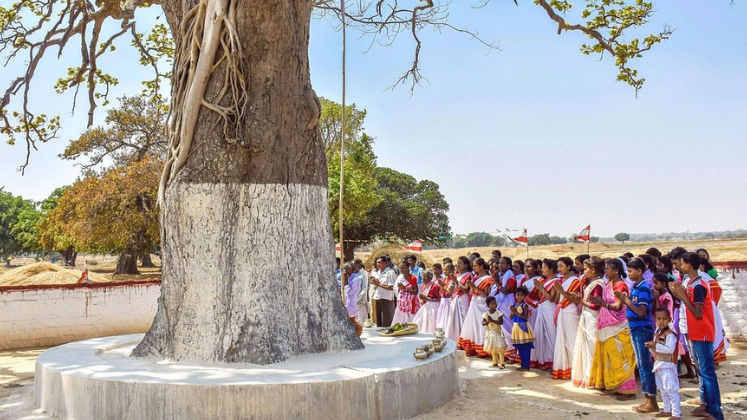Science and religion have often been seen as conflicting. What about the social sciences? Is there space for social scientists to be religious? Monika reflects on discussions in Sociology at Boston University.

We often encounter the heated realm of science and religion, in our day-to-day life usually called physical science. Elders often say that science has its limits, and that’s where religion steps in. This idea originally came up in discussions about science and religion, but doesn’t it affect social scientists and religion too? Especially now, as social sciences increasingly rely on quantifying and empirically tested evidence, this boundary between science and religion might impact how we study society and people’s beliefs. It’s like a ripple effect—what happens when we draw a line between what science can prove and what religion holds? This isn’t just about laboratories and churches; it’s about how we understand and study our societies. But! Well, all these questions could be framed as a thesis in itself and we don’t want to get trapped with these debatable questions. In this article we will try to stick with how social scientists dealt with religion or can social scientists stay religious. In order to address this question, we first need to understand the role of social science in society.
How does social science contribute to our day-to-day tasks? Unlike natural sciences, social science does not produce any machine, any physical product, not even coding, and no computational work. The role of social science is to study human society, behaviour, and interactions to gain a deeper understanding of social phenomena. The social sciences encompass disciplines such as sociology, psychology, anthropology, economics, political science, and many more. These fields analyse various aspects of human life, including social structures, cultural practices, individual behaviour, economic systems, and political institutions. Here we must understand that we should not merge social sciences and humanities as they are both very distinct and requires different methodological approaches to study. According to Prof. Greenfeld, social science is static because they tried to imitate the methodology of science. Since its beginning until now in the 21st century, we are still reading social science from the Greek and Western perspectives which have no relevance, no objectivity, and of course no universality when applied to the eastern mode of thinking i.e. China, India or Japan.
Here we have reached our core question, is it true that social scientists can be religious? In simple words we understand that — social scientists need to produce theses, theories, empirical evidence which has universality in nature, not subjectivity but objectivity, to test and compare other traditions, cultures, and civilizations. And their words get stuck in the trap of cultural relativism.
Now in the world of ideas, being both a social scientist and religious can feel like walking on a tightrope. Social scientists aim for objectivity, universality, and chasing facts that hold true for everyone. On the other hand, religious beliefs are deeply personal, subjective, very specific, and often far away from universality. In their pursuit of knowledge, social scientists are bound by a commitment to objectivity. Their goal is to understand the complexities of society without being influenced by personal biases. When compared to opinions about religion, where beliefs are fundamentally subjective and vary greatly between individuals and societies, this necessity for impartiality becomes especially obvious. The clash between these two worlds stems from the need for social scientists to stay neutral, avoiding personal biases that might arise from religious beliefs.
Confronting Challenges
In this tricky mix of being fair and holding onto personal beliefs, social scientists face a challenge. They’re like jugglers, trying to keep the balls of diverse beliefs and scientific rules up in the air. To find their way, they need to understand how religion shapes our positionality, both as individuals and as part of a larger society. It’s a tightrope act, balancing respect for different beliefs with the need for solid scientific proof.
Another issue that impacts social scientists occurs in national societies, which are inherently egalitarian and believe that everyone is equal. Doesn’t this additionally make their taste even more robust? They frequently become stuck with what they desire for themselves amid all this craziness of equality, where individuals, including social scientists and scientists, are free creators and free bees. In contrast, religious consciousness generally/could be said to have predominated in pre-national cultures where social mobility did not exist and everything was predetermined, including one’s identity. Wasn’t that society easy to deal with? We should acknowledge and understand this perspective as well, but it’s not against equality. The urge to write about this is to emphasise that when you are already placed somewhere, and your identity is already marked, then it is easy to understand their complexities as well.
Digging into history, it’s fascinating to see how our mental well-being has danced with religious identity. Back in the day, before nations were a big deal, religion was a key part of who we were. But as societies grew more equal and religion took a back seat, some social scientists argue that this shift messed with our heads a bit. It makes us wonder: does less religion mean more mental struggles? This tug-of-war between societal changes, religious beliefs, and our mental health is a puzzle that keeps social scientists on their toes.
For the social scientist, it’s not just about theories and data. They’re mulling over the real stuff – our identities and how society shapes them. In simpler terms, they’re wondering how religion used to be our go-to identity card and what happened when that changed. It’s not just an academic debate; it’s about our day-to-day lives and how we find our place in the world.
This article captures the author’s interpretation of the debate from her Sociology of Culture class as a visiting PhD student at Boston University.






It’s outstanding article and reflect the balanced arguments.